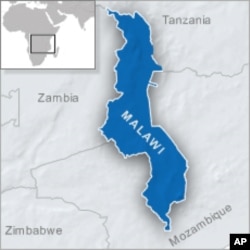The country’s major cities were almost deserted except for the presence of police officers patrolling the streets in and around major towns.
Commentators say this was a move to quell the effects of the vigils planned by civil society organizations in the country’s major cities and towns like potential violence.
The protests had been organized and publicized by civic society organizations as part of their campaign to force President Bingu wa Mutharika to change his political and economic policies.
The protests were announced after rights campaigners called off the United Nation’s-facilitated dialogue with the government, claiming that the talks were not going anywhere.
But reports from the main urban centres say there has not been much support for calls for people to mark the vigils by staying at home for up to three days.
In the commercial capital Blantyre, people were going about their normal day to day lives with most shops, companies and banks open.
In the capital Lilongwe, the atmosphere was reportedly calm as well though some shops were closed and the city was not as busy as it normally is.
And reports indicate that most shops and banks in the northern city of Mzuzu were closed with only the main market open.
However the failure of the vigils has been good news to business people.
Mike Mlombwa, the president of the Informal Business Association of Malawi said, “We are not happy with these vigils. We are asking the civil society organizers “can you keep on negotiating” because we don’t know how we are going to benefit from the vigils and demonstrations"
" If these people fail to reach an agreement ." he continued, "may be they should charter a plane and go America and ask the United Nations to give them a room for negotiations, may be they can come up with solutions after their discussions.”
However political scientist Noel Mbowela of Mzuzu University told a local Blantyre radio Capital FM that the cancellation of the vigils would likely cause some supporters to lose trust in the civil society organizations.
“I think the most unfortunate thing," he said, " is how the confidence they [civil society leaders] have lost from the people is going to [negatively] impact their future agendas whereby people will not take them seriously anymore and will not rally behind their calls even if it could be genuine and very important that time.”
Executive Director of a local think tank Institute of Policy Interaction Rafik Hajat is one of those who were in the forefront of organizing the vigil.
He apologized in a local radio interview for the cancellations which he, in part, attributed to threats they were receiving in the run-up to the event.
“My action has led to the disappointment and I apologize and I accept liability," said Hajat. "I must however say that we have suffered huge losses. Our offices have been burned to the ground.... but if people are still disappointed with us, I would say that [they should] tell us what you want us to do and show us how to do it.”
Hajat’s offices were burned down three weeks ago by what the police say was a petrol bomb. Police are still investigating the case.
The incident was followed by another fire which burned down the home of the acting national coordinator for a local NGO that was also supporting the vigils, the Malawi Human Rights Consultative Committee.










